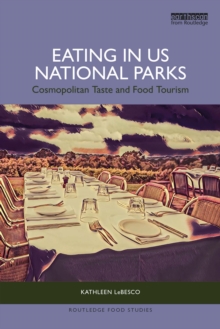
Food Education and Gastronomic Tradition in Japan and France : Ethical and Sociological Theories EPUB
by Haruka Ueda
Part of the Routledge Food Studies series
EPUB
Description
Drawing on ethical and sociological theories of food, this book presents a new approach to food education that moves beyond nutrition-centred education.
Food education has gained increasing scientific and political importance in many countries as a promising way to change contemporary eating. However, many practices fail to address two epistemological obstacles regarding its very components - 'food' and 'education'. Food has largely been thought of from a nutritionistic viewpoint alone and the ethical issues over children's freedom of choice and well-being have been absent. This book resolves these problems by applying ethical and sociological theories of food and analysing food education in two pioneering countries: Japan and France. The book focuses on taste education and gastronomy as two key concepts which have great potential to positively impact food education. Taste education is a promising alternative to nutrition-centred pedagogy which foregrounds the experience and pleasure of eating food, creating an environment for taste sensibility and food curiosity. From taste education, the picture can be broadened to examine the role and impact of gastronomy in food education. Examining the cultural traditions of France and Japan reveals how gastronomy can impact eating habits and food cultures and how these criteria should be an intrinsic part of food education. The book concludes by constructing an integrative theory for food education that moves beyond nutrition-centred education for the benefit of one's well-being.
This book will greatly interest students, scholars, policymakers and educators working on food education, food-related issues at the intersection between nutritional and social sciences, and 'gastronomes' searching for a pedagogical guide for developing their capabilities to eat in a more humanistic way.
Information
-
Download - Immediately Available
- Format:EPUB
- Pages:214 pages
- Publisher:Taylor & Francis
- Publication Date:24/11/2022
-
Category:
- Food & society
- Illness & addiction: social aspects
- Sociology
- Moral & social purpose of education
- Educational strategies & policy
- Teaching of a specific subject
- Politics & government
- Agriculture & related industries
- Dietetics & nutrition
- Medical sociology
- Environmental science, engineering & technology
- Agricultural science
- Health & Lifestyle
- Cookery / food & drink etc
- Educational: Food technology
- ISBN:9781000785371
Other Formats
- PDF from £35.99
- Hardback from £125.00
Information
-
Download - Immediately Available
- Format:EPUB
- Pages:214 pages
- Publisher:Taylor & Francis
- Publication Date:24/11/2022
-
Category:
- Food & society
- Illness & addiction: social aspects
- Sociology
- Moral & social purpose of education
- Educational strategies & policy
- Teaching of a specific subject
- Politics & government
- Agriculture & related industries
- Dietetics & nutrition
- Medical sociology
- Environmental science, engineering & technology
- Agricultural science
- Health & Lifestyle
- Cookery / food & drink etc
- Educational: Food technology
- ISBN:9781000785371










